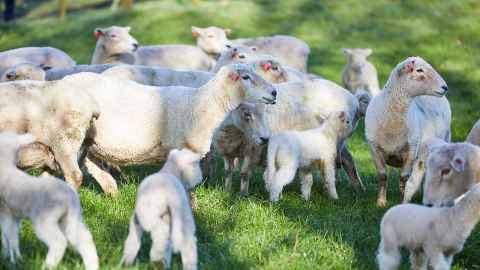Working with sheep to study hearing loss

Hearing loss is one of the most prevalent sensory impairments. It is the second most common cause of disability after depression and is also a mid-age risk factor for dementia.
Scientists at the Faculty of Medical and Health Science (FMHS) are working on the delivery of medication to repair the inner ear organ (Cochlea) deep inside our ears that transmit sound signals. They have been experimenting with drug delivery approaches to the inner ear via the ear’s round window membrane (RWM). They aim to develop a medical device that goes through the ear canal to extract information about what is happening in the cochlea.
Like human ears
“The human inner ear is difficult to access – it is pea-sized and surrounded by dense bone of the skull,” explains Dr Haruna Suzuki-Kerr. “This makes it very difficult to administer drugs or to get biopsies from the inner ear. We are trying to develop a medical device that can be inserted through the ear canal to approach the inner ear.”
Before they can work on humans, the researchers have been working with animals, including sheep bred and kept at Ngapouri Research Farm. While guinea pigs and rats have been used for this work previously, sheep provide a much closer approximation to human ears, with thicker skull, round window membrane and similarly sized structures in the inner, middle and outer ears.
“Ewes are a good model, with quite a round skull and an ear canal that is similar in size to that of a human child,” says Haruna. “The cochlear size is also really similar to humans.” Sheep also live to about 12 years of age, meaning they can be used in longitudinal studies to look at the long-term safety of the FMHS team’s medical device over time.
Peace of mind for researchers
For the researchers, it is important that the sheep live a good life while undergoing experimentation. Sheep at Ngapouri spend most of their time in the paddock, coming inside only for interventions.
“We don’t want to keep sheep indoors for months at a time or a year – for us, having the farm gives us so many opportunities” says Haruna.